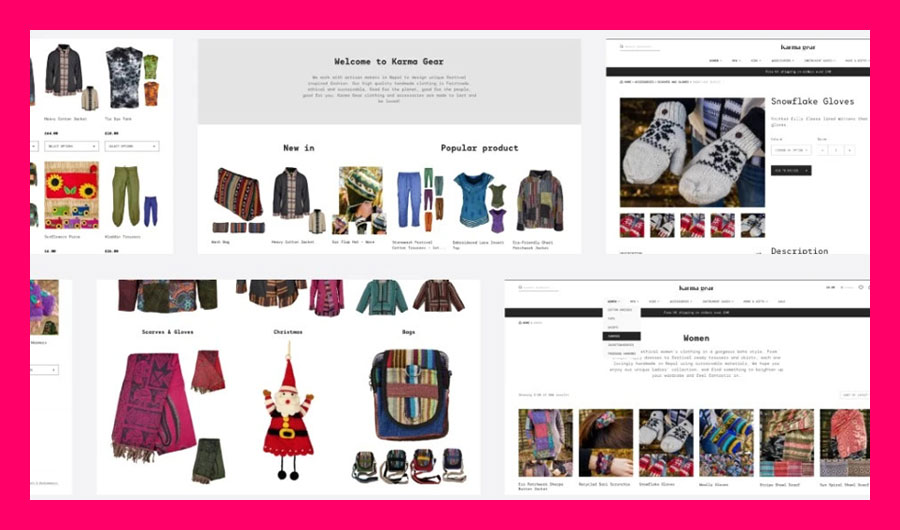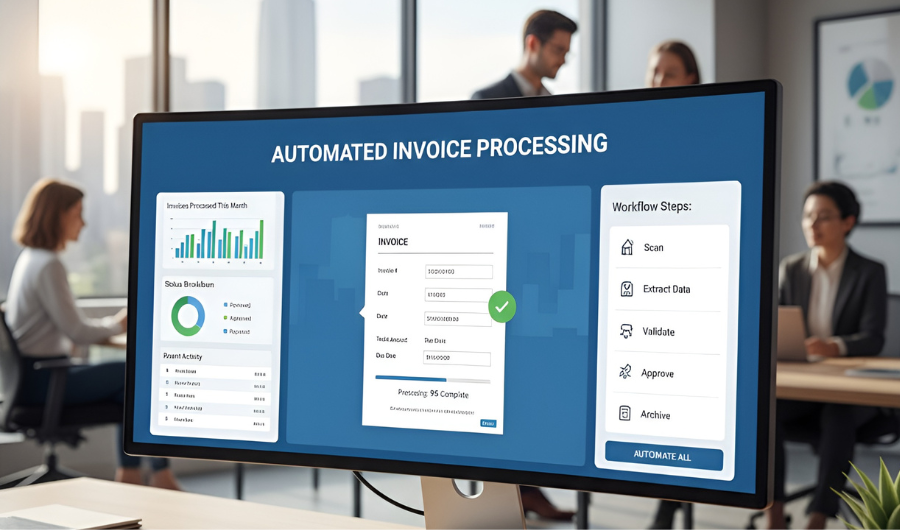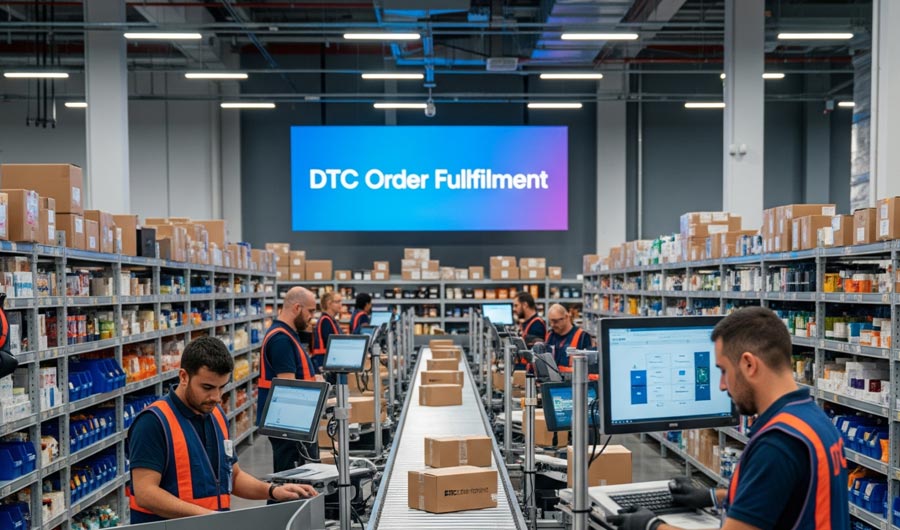
How Leveraging Technology Can Offer A Competitive Advantage In The Digital Era
Technology has undoubtedly become an unformidable force in business. Every year, a new development or advancement in technology ignites creativity and opens doors to new opportunities. Simply look at the staggering amount the tech sector is currently reportedly worth (5.2 trillion).
Integrating technology impacts almost all businesses – from the smallest start-ups to powerful, large enterprises. So, what drives this adoption? The desire and need to improve service delivery, increase productivity, and reduce costs within business.
However, it might not be as straightforward as one would imagine. If businesses want to benefit from these technological investments fully, they have to select the tools that align with their strategic goals and operational needs. In doing so, the correct application of technology they chose can help to optimise their existing processes and open up new avenues for growth and innovation. So, ready to learn more? Keep reading as we explore how technology can offer your company a competitive advantage in this digital era.
AI and Automation Impact On A Business Strategy
Two of the most influential technology advancements available today are AI and automation. What’s more, they are both continuously redefining what’s possible. Many businesses are, understandably, curious to learn more about their advantages. After all, there is a lot of support for these technological innovations as they can offer businesses unprecedented efficiencies and capabilities. Of course, knowing the best route to implement them and where can make all the difference.
Starting with AI, this powerful component has the ability to process large volumes of data quickly and accurately. What benefit can this have on your business? The way processing large quantities of data benefits your business is that it enables you to make more informed decisions, and identify trends that would otherwise remain unnoticed.
What about automation? You can use automation tools to simplify repetitive and mundane tasks. These mundane tasks can often leave your team feeling unproductive and struggling to find motivation with work. Investing and implementing automation into your business can have numerous benefits, including boosting productivity levels amongst your team, as it enables them to focus on more complex and strategic activities. If you take brewery industry as example, a brewery inventory software like Ollie can automate inventory management and track brewing processes. This allows staff to focus on crafting high-quality beer instead of repetitive administrative tasks.
AI and automation are a powerful combination. You can use these innovations to enhance productivity, improve accuracy, and maintain consistency across various operations within your company. For example, you could implement chatbots and automated response systems to handle routine inquiries from customers. This helps to minimise the need for human intervention. Again, the benefit of this is that it allows staff to focus on resolving more complicated issues – problems that are more engaging for them.
But the advantages do not end there! These technologies can also adapt and learn from every interaction. What this means is that these processes can continually improve their responses and strategies. As for what this does for your business, it can further benefit the image of your company and the processes you follow.
Harnessing The Power Of Analytics
It’s not just AI and automation that are taking centre stage; data is also a powerful factor to keep in mind. Utilising data effectively and knowing how to do so can have a positive impact on business. For instance, utilizing data can help you to make strategic decisions for your business that help to drive growth and efficiency. As advancements in analytics technologies continuously occur, the new developments could provide your business with access to insights in real-time. With these insights, you can respond swiftly to market changes and customer preferences – helping you remain competitive in your respective industry.
Another advantage is that your business is able to understand consumer behavior, optimise operations, and predict future trends with greater accuracy. A great example of this is retailers using data analytics to manage inventory more efficiently. This could be forecasting demand to minimise overstock and understock situations.
In a similar vein, your marketing team can analyse customer data to tailor upcoming campaigns to resonate with your target audience. Doing so could help improve engagement and ROI from the campaign. However, the key to successful data-driven decision-making lies in the integration of robust analytics tools and having a culture that values data-centric strategies. If you prioritise data insights means, it can help you streamline your operations and enhance your adaptability in a dynamic market.
Revolutionising Document Management: Streamlining Processes For Agility And Compliance
One lesser-known change your company could make that can help make a difference is how you manage your documents. Agility and compliance are seen as opposing forces when it comes to document management. But, thanks to modern technologies, there is now a bridge to this gap. A bridge that makes it possible to achieve both simultaneously.
For example, one significant advancement is the use of tools that convert PDF to Word. What’s the advantage of being able to convert a PDF to a Word document? It’s the ability to easily edit and integrate the converted document into various business processes. Its capability can be particularly beneficial for your business if you need to comply with strict regulatory standards requiring precise document editing and formatting.
The ability to swiftly convert PDF documents into editable Word files facilitates quicker revisions, approvals, and compliance checks, enhancing overall operational efficiency. What’s more is that these tools support the archiving of documents in formats that are both accessible and secure, further supporting compliance needs in your business. Using streamlined document management systems reduces the time and resources spent on manual document handling and minimising errors. The end result is an improvement in traceability, something that is important for maintaining compliance in highly regulated industries.
Sustainable Tech Practices: What’s Their Environmental Impact
Sustainability is a topic dominating conversations. Businesses trying to remain competitive in their respective industry will under how sustainability is an influencing factor in how they operate and, more so, how they move forward. Are you looking into adopting new technologies into your business? If the answer is yes, at the centre of your decision-making should be the importance of sustainable tech practices and minimising the impact technology advancements have on the environment.
Look at how effective sustainability in technology revolves around designing systems and processes that minimise environmental impact, all while boosting operational efficiency. What this involves is deploying energy-efficient data centres, opting for cloud solutions to reduce hardware dependency, and using virtual meeting tools to cut down on travel emissions. If you choose to adopt these practices, then you have the ability to fulfil your environmental responsibilities. Not only this, but you can also continue to meet consumer expectations by using eco-friendly operations you have chosen to implement.
Embracing technology is essential if you want your company to remain competitive in your respective industry. Looking for ways to leverage cutting-edge technologies can help you in your mission to help give your business a significant advantage. For example, you can streamline operations, enhance customer experiences, and drive innovation—all of which are goals any business consistently strives to achieve.
However, the process might not be as straightforward as hoped. Ultimately, if you leverage technology, you have the key to unlocking sustainable growth, customer loyalty, and a competitive edge in the digital era we find ourselves in.






